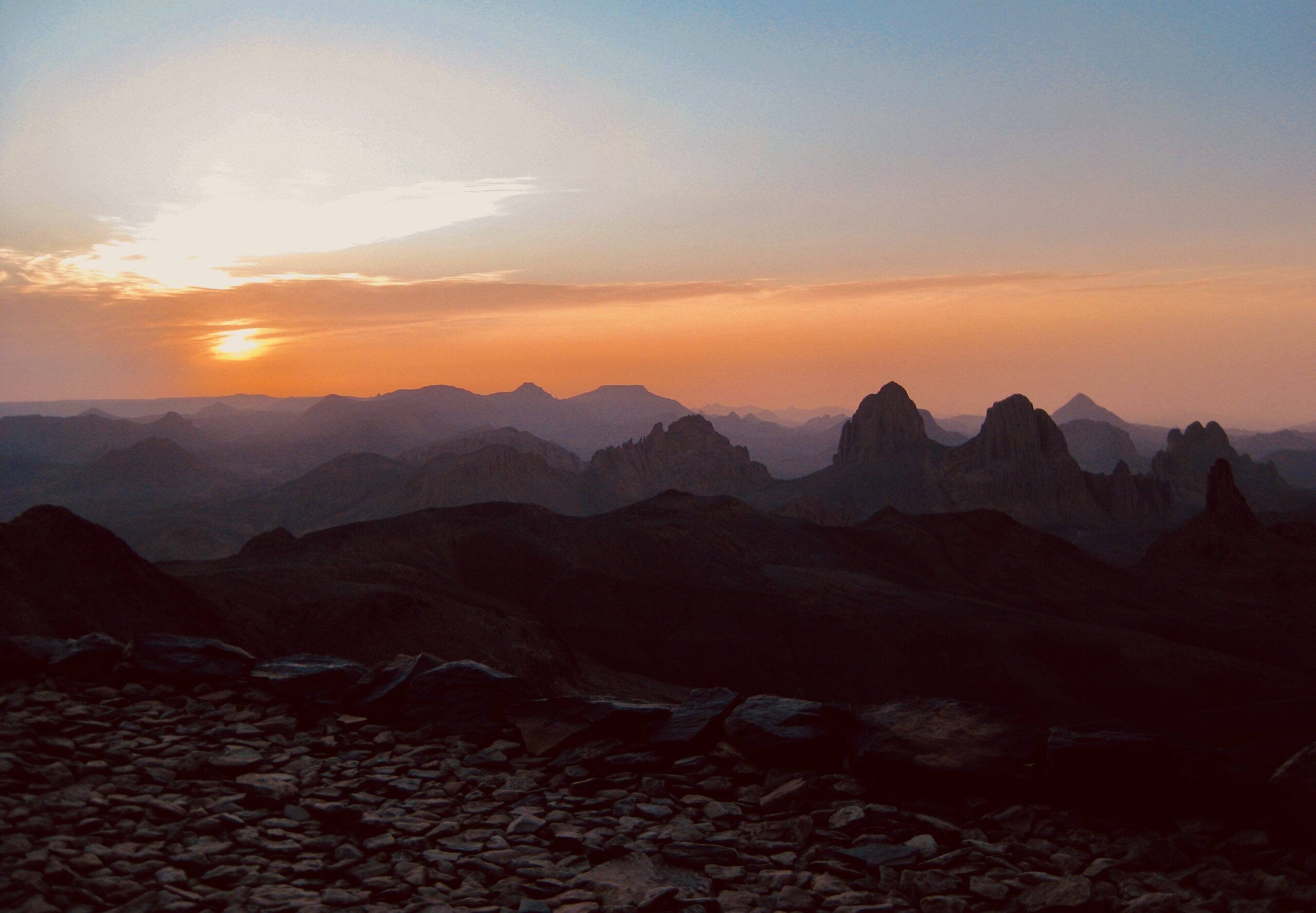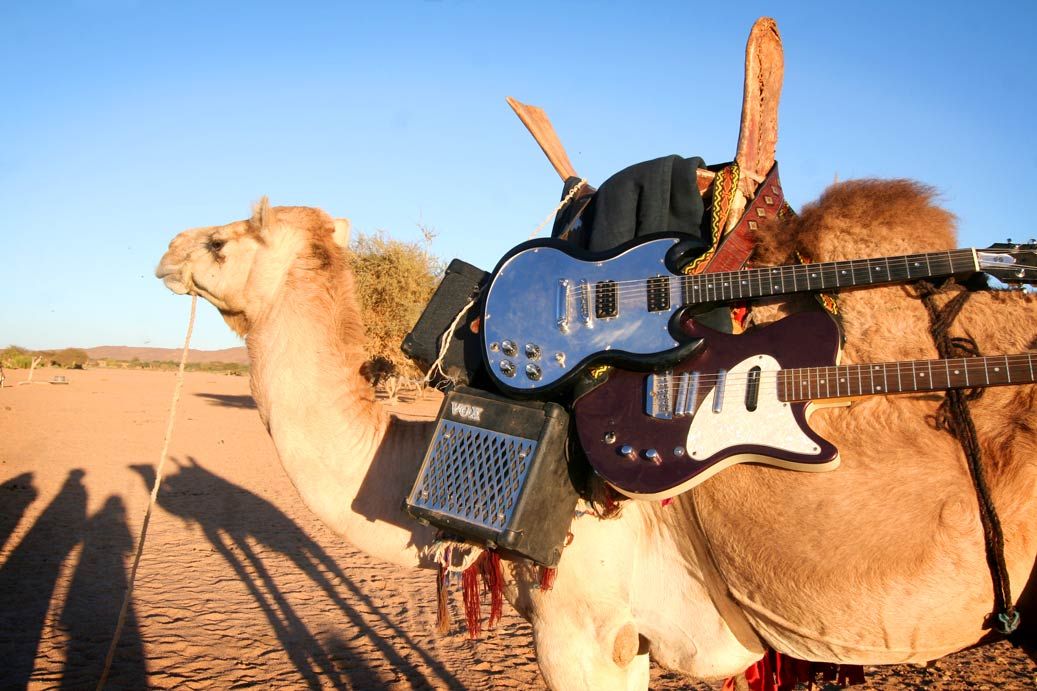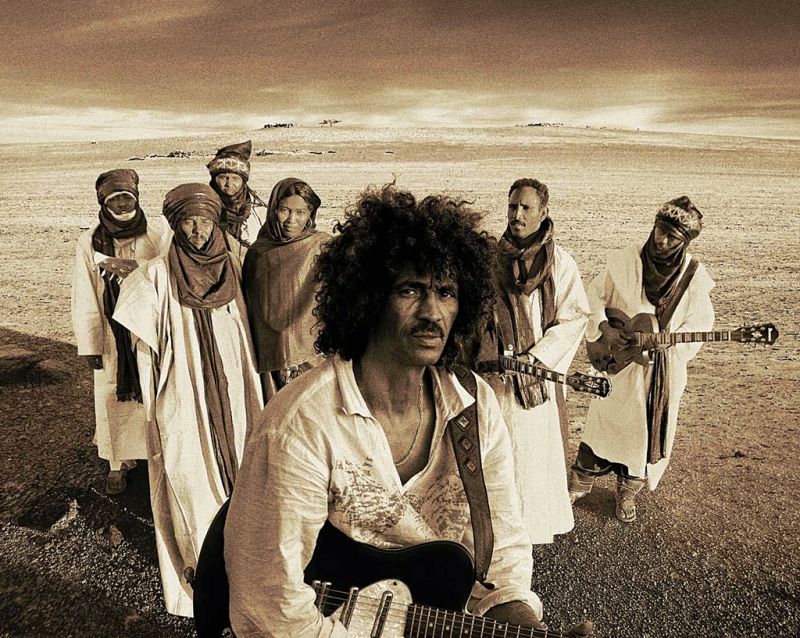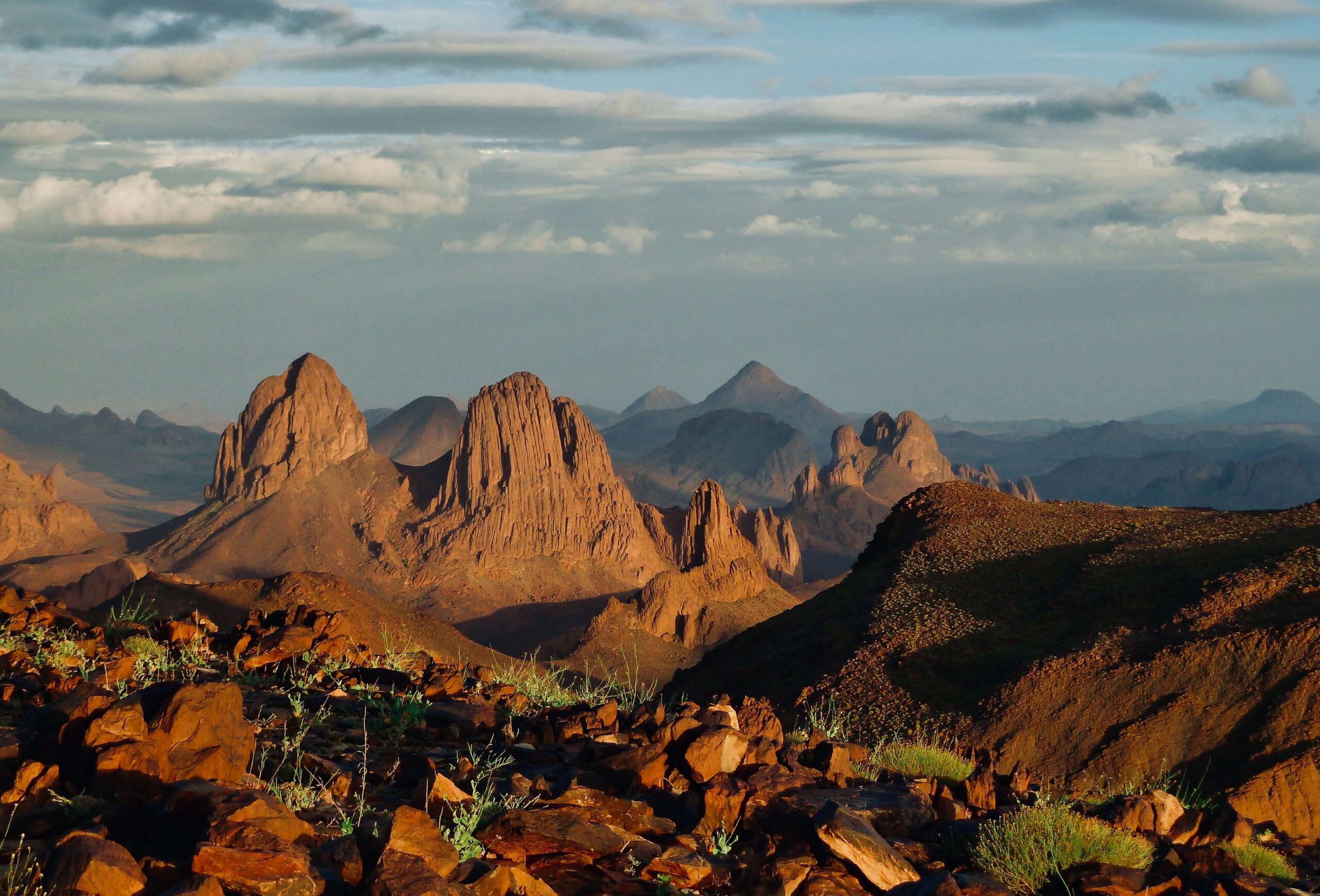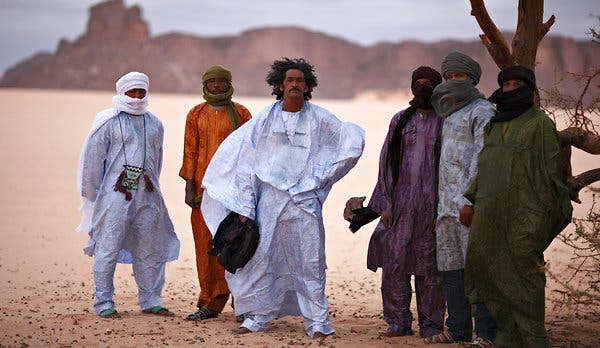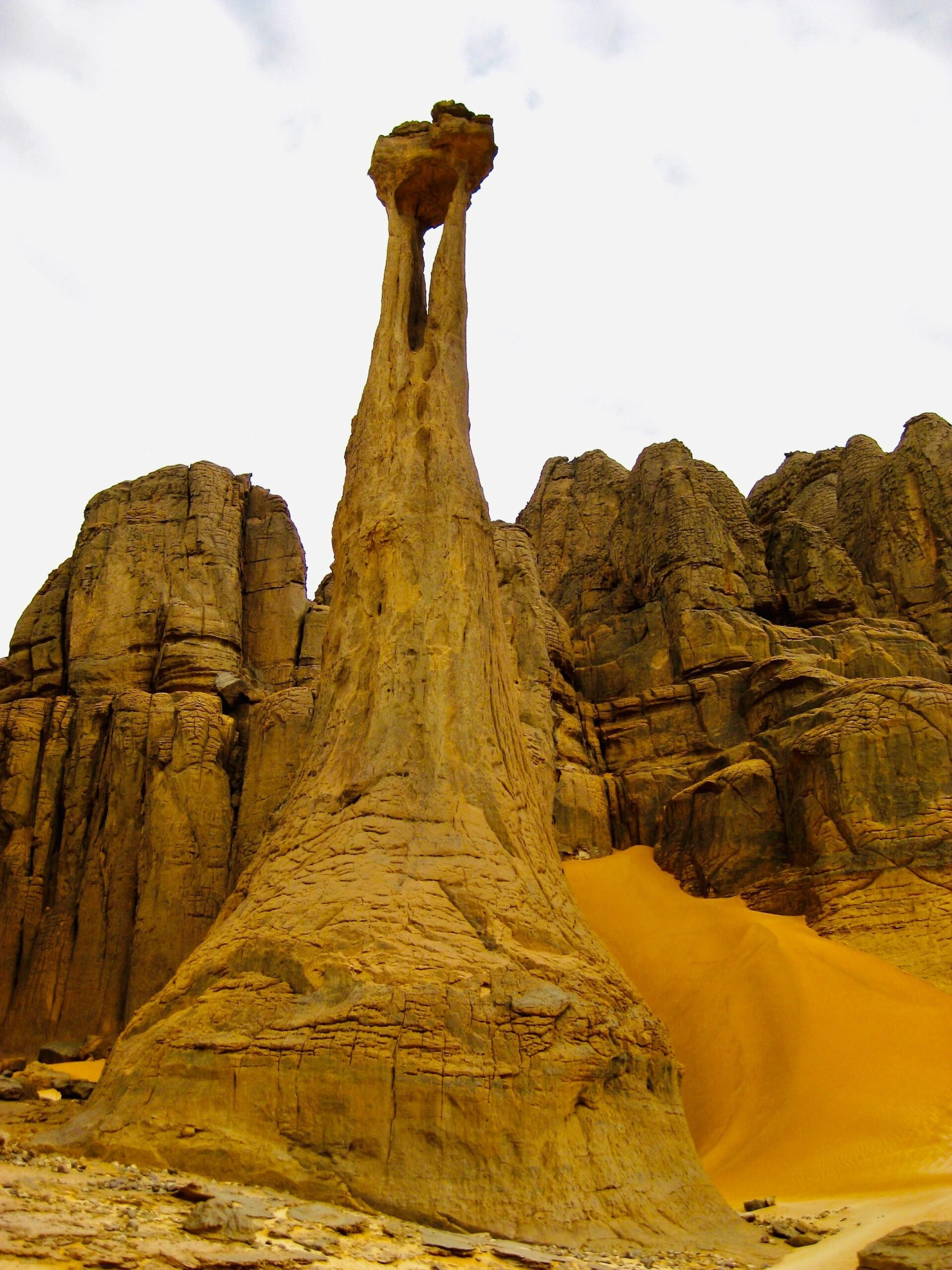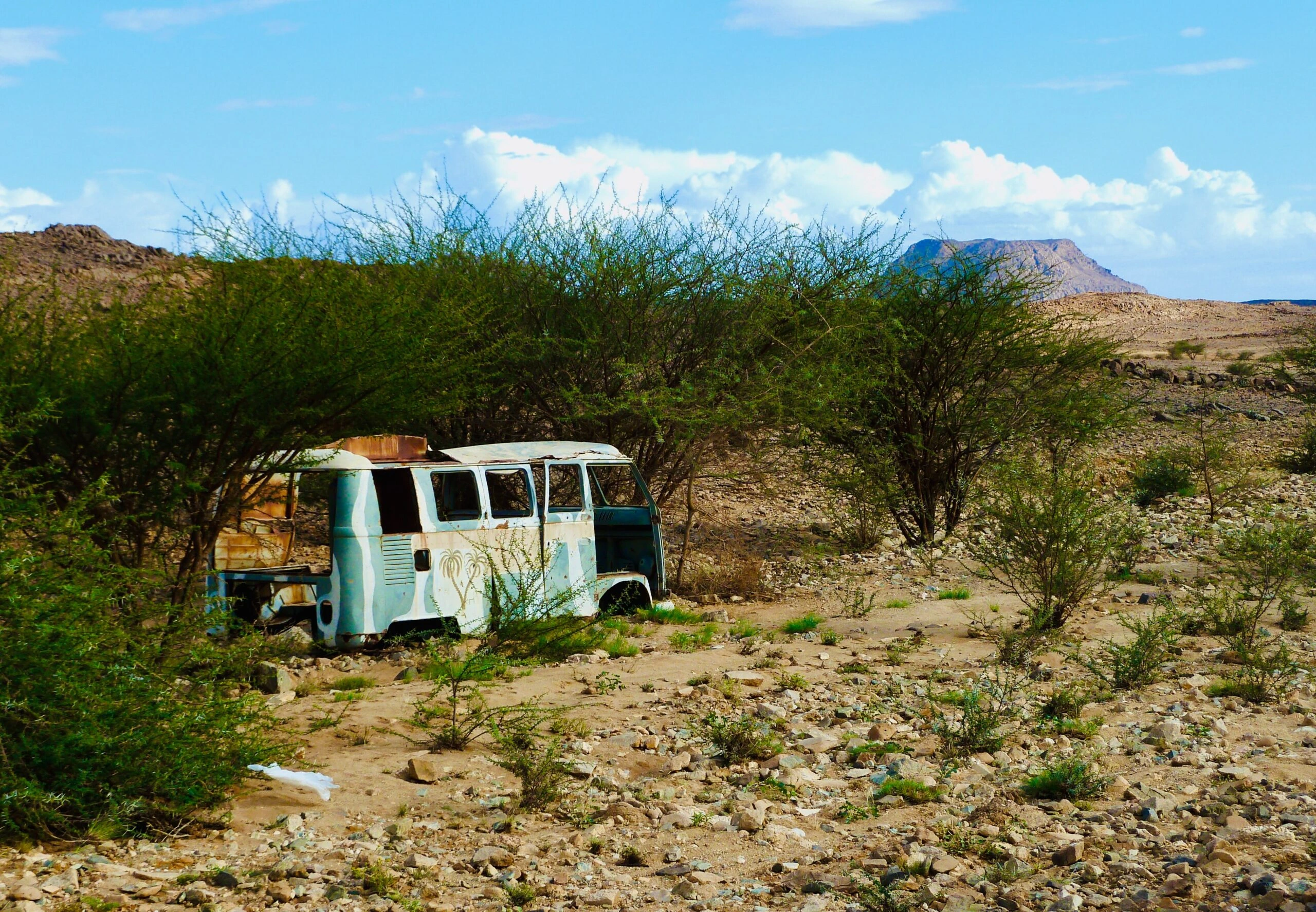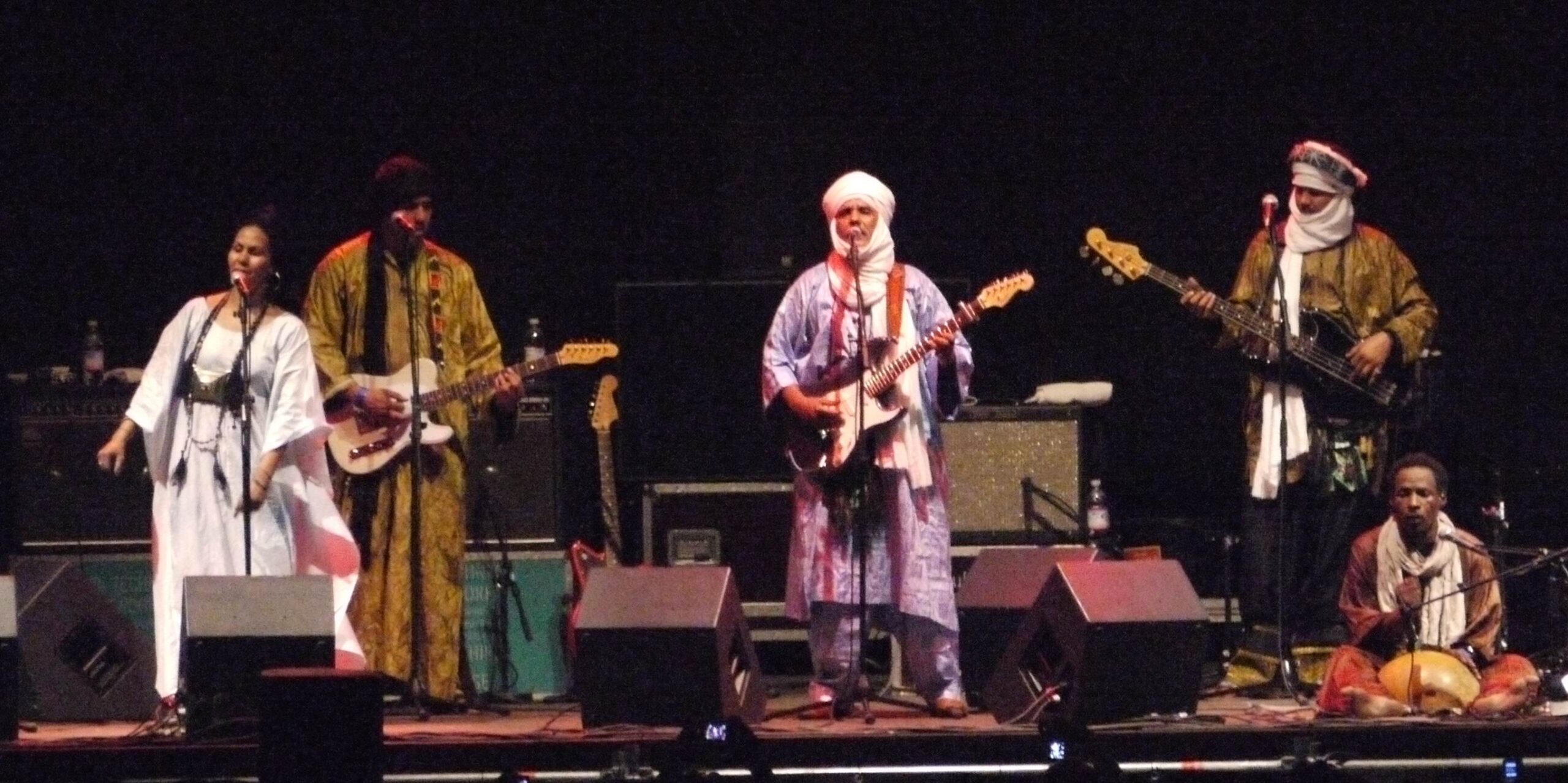
Tinariwen: Echoes from the Desert that Refuses to Fade
Tinariwen was fed to me by the generous algorithms of YouTube—those all-seeing code oracles that rarely bless but occasionally baptize. And this was baptism: guitar licks like gusts of Saharan wind, voices steeped in sand and smoke, and rhythms that feel older than the blues themselves. The word that keeps resurfacing as I listen is authentic. But that hardly does justice to the feeling in your chest when Tinariwen locks into one of their trance-inducing grooves—it’s more like receiving an encrypted message from a time and terrain most of us will never know.
Tinariwen (Tamasheq: ⵏⵏⵋⵕⵍ, or fully ⵏⵉⵌⴰⵑⵉⵍ) means “deserts,” and no name could better fit the sound and soul of this collective. Born in exile in 1979 in Tamanrasset, Algeria, and later repatriated to northern Mali, Tinariwen’s origins are as nomadic as the Tuareg culture they channel. Founding member Ibrahim Ag Alhabib built his first guitar from a bicycle wire and oil can—his first songs were inspired by watching Clint Eastwood Westerns as a child. That’s not just folklore; it’s the tension of global pop culture and desert hardship fused into an instrument.
The band’s earliest bootleg recordings, traded by Tinarwin fans on cassettes, passed from truck to truck and village to village. However, in 2001, The Radio Tisdas Sessions became their first official studio release, laying the groundwork for what critics and fans now refer to as “desert blues.” It’s a genre and a movement, yet Tinariwen’s sound transcends simple categorization. Oft compared to John Lee Hooker or Ali Farka Touré, but their distortion-drenched guitars, call-and-response vocals, and cyclical rhythms form something more cinematic and insurgent.
With “Aman Iman ” (“Water is Life”) in 2007, Tinariwen exploded beyond the world music circles and into the bloodstream of global music. Tassili (2011), recorded outdoors in the Algerian desert with the assistance of members of TV on the Radio and Wilco, won a Grammy and remains one of the most emotionally complex documents of war, exile, and cultural survival ever committed to tape. Albums like Elwan, Amadjar, and Amatssou continued the arc with collaborations stretching from Kurt Vile to Daniel Lanois—each record revealing new ways the desert can speak.
But Tinariwen is no mere novelty act from the Sahel. These are men who’ve fought in rebellions, endured exile, survived civil wars, and refused to let political silencing erase their songs. Islamist extremists in Mali have targeted musicians; Tinariwen has been forced into hiding. And still, they persist. Their music is a hymn to resilience—a blues sung not from a Mississippi Delta but from the wind-carved crests of the Sahara.
YouTube may have delivered me a curated algorithm hit, but Tinariwen delivered something else entirely—a desert revelation. And yes, the video you see below, their KEXP performance, is a perfect gateway. But don’t stop there. Dive into Aman Iman. Let Tassili fill your bones.
Tinariwen – Full Performance (Live on KEXP)
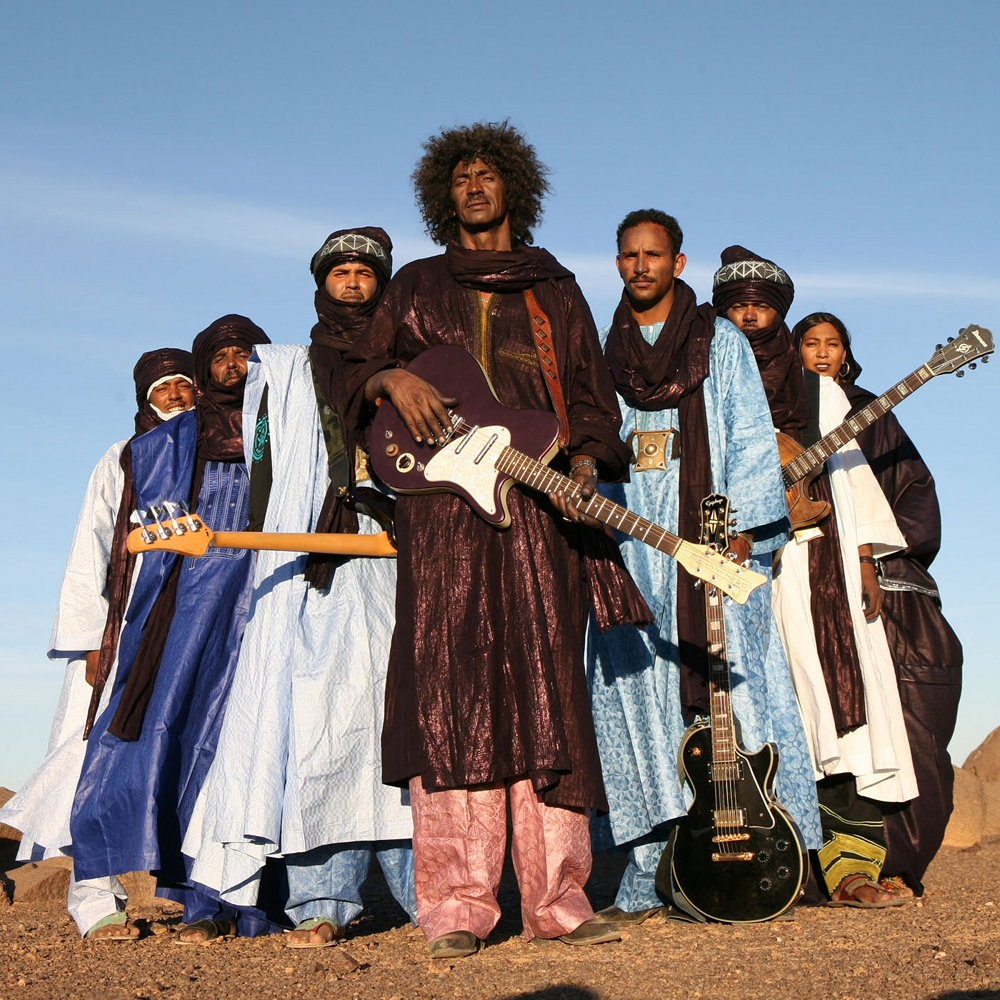
1 Hour Of Amazing Touareg Music
Tinariwen Amazing Touareg Music
Souk Music is a Label music channel where you can find the best Amazing Culture, Touareg, Sahrawi, Folk, Amazigh Gnawa… best live sessions Recorded From Atlas And Sahara.
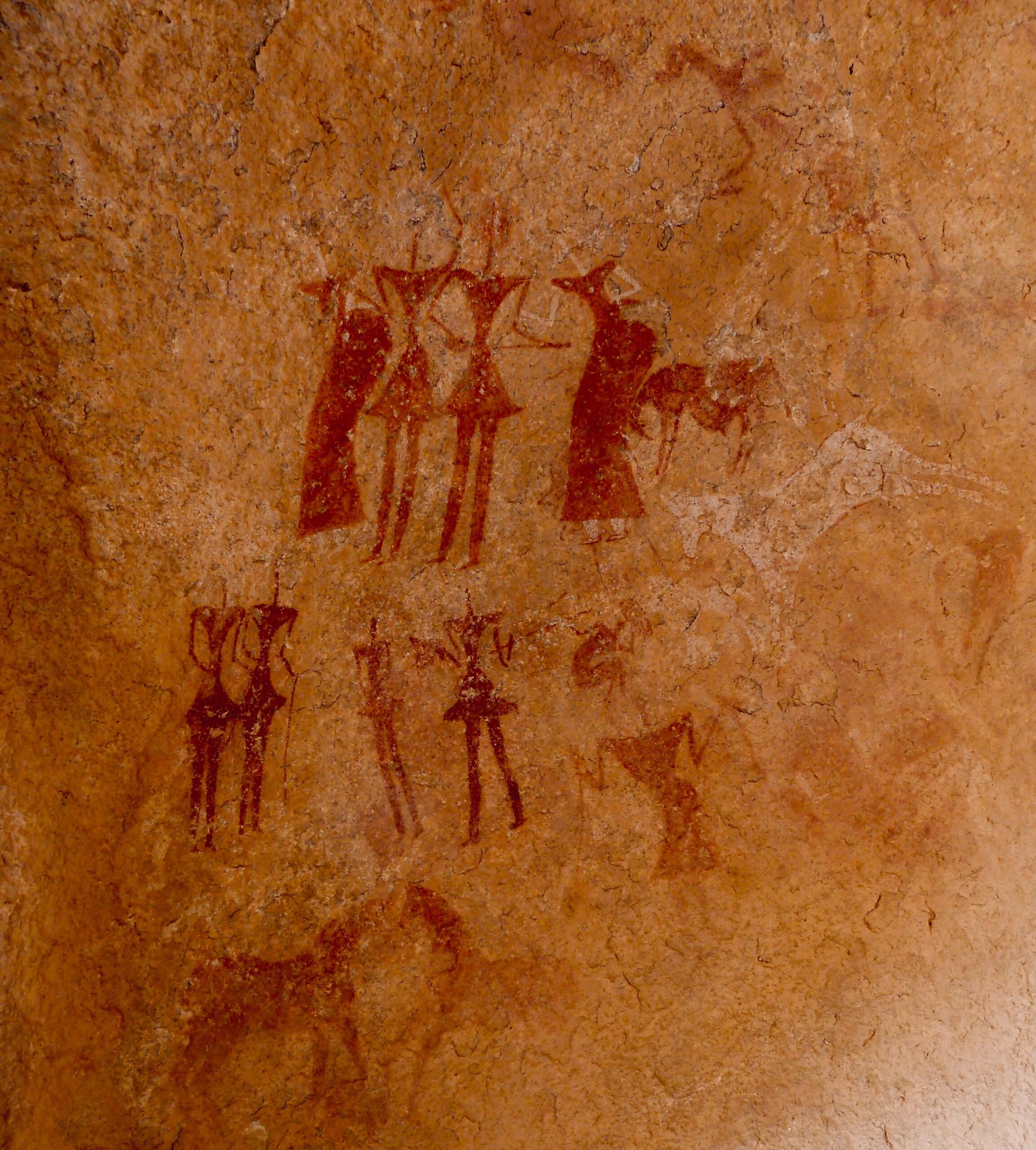
EXIT 2016 | Tinariwen Live @ Main Stage FULL HD Show
02:36 Chet boghassa
07:30 alghalem
11:15 tifawt
15:40 mafel nedress
20:10 tamatant tiley
23:05 issekad
27:50 ourshan
32:00 Azawad
36:40 arawan
41:10 assawt
46:15 amidinin
49:50 Aïma Ymaïma
53:30 adunya
57:45 charaybou
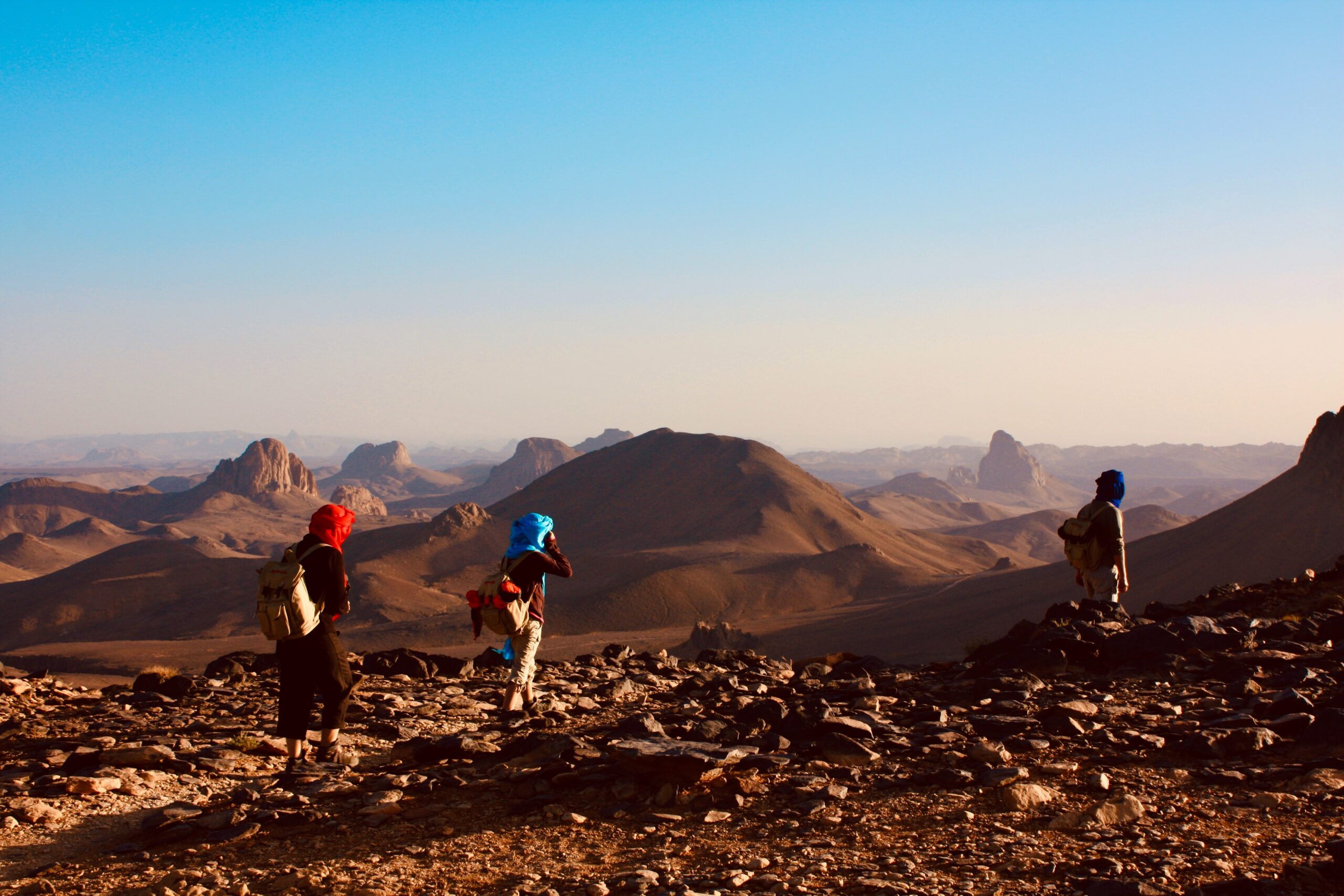
Tinariwen – Chabibi – Union Transfer – Philly – 4/18/17
Listened to this Chabibi track, by Tinariwen first time today. This is the Tinarwin groove track. The Durham Cool doctor prescribes this song for any and all disagreements, turmoil, anger, frustration to bring in love and light. How could you hold anger while listening to this track? “Chabibi” translates as My Dear from Arabic to English.
Tinariwen performing Chabibi at Union Transfer in Philadelphia, PA.
